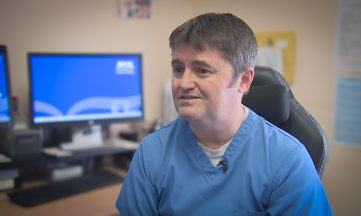Courts will be required to take rehabilitation into account as the primary consideration when sentencing young people under a new guideline.
The Scottish Sentencing Council said it recognises that young people have a greater capacity for change and believes that a more “individualistic approach” is appropriate for those aged under 25.
It is hoped that giving more consideration to rehabilitation will help to reduce reoffending among young people.
However, the guideline makes it clear that while rehabilitation is a primary consideration when sentencing a young person, other purposes of sentencing, such as punishment and protection of the public, are also relevant.
The Sentencing Young People guideline will be submitted to the High Court for approval this month and follows a public consultation on the issue last year.
Lady Dorrian, Lord Justice Clerk and chairwoman of the council, said: “The sentencing of young people is a complex and challenging exercise which requires a more individualistic approach, with a need to take the unique personal circumstances of the young person and their intellectual and emotional maturity into account.
“The guideline explains this and sets out the approach courts should adopt when carrying out that exercise.
“The views expressed in the consultation echo those expressed by members of the public in independent research that rehabilitation should be a primary consideration when sentencing a young person.
“The council’s hope and expectation is that through greater emphasis on rehabilitation, encouraging the use of review hearings, such as for those carrying out unpaid work, and increased use of the children’s hearings system for those under 18, the guideline will bring long-term social and economic benefits by promoting reduced reoffending.”
Subject to the High Court’s approval, the guideline will apply to the sentencing of all those under the age of 25 at the date of their plea of guilty or when a finding of guilt is made against them.
The council said its decision was based on compelling scientific evidence on the development of cognitive maturity.
The guideline provides clearer guidance on how the assessment of a young person’s maturity has a bearing on culpability, and gives more clarity on how the impact on victims is to be taken in account.
It highlights the need to take into account factors common to many young people who commit offences, such as experience of trauma, including traumatic bereavement, and high levels of adverse childhood experiences.
However, it makes it clear that the full range of sentencing options will remain open to courts when sentencing a young person.
It has also been restructured to make it clearer at which point courts should consider particular matters and why.
Lady Dorrian said: “We are satisfied having commissioned independent research that there is sufficient evidence to adopt a different approach to sentencing for those under 25.
“We fully considered all the views expressed, including those which did not support this specific proposal. The weight of the evidence on brain development, together with how this can be affected by factors such as trauma or adverse childhood experiences, has persuaded us that a more individualistic approach to the sentencing of those under 25 is necessary and appropriate in order to support rehabilitation and help to reduce reoffending.
“Courts will consider these factors while also taking account of the harm caused to the victim, before arriving at an appropriate sentence.”
Follow STV News on WhatsApp
Scan the QR code on your mobile device for all the latest news from around the country
























